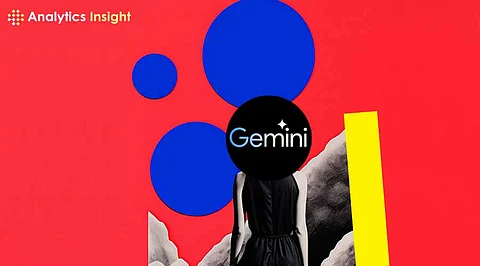

Artificial Intelligence is changing dynamically, and the struggle between top AI technologies remains intense. Among all this innovative stuff, Google Gemini and Open AI's ChatGPT to mention the most popular ones out of these many AIs.
Both are different, but in respect of function and capability, Google Gemini appears to be a strong contender in the race involving the artificial intelligence. Now, let's see why Google Gemini is better than ChatGPT.
Perhaps the greatest strength of Google Gemini lies in its multimodal capabilities. Multimodal AI refers to the capability of processing and understanding information input from various sources, that is, text, images, audio, and video simultaneously. It manages all forms of data created by and used by man, thus proving more versatile and efficient compared to other systems.
There is deep multimodal integration that Gemini offers which remains a gap area where ChatGPT lags behind: it can thus understand complex queries that will be combinations of both text and visuals. For instance, image-based object identification with concurrent text-based instructions can be processed smoothly by Gemini, hence making it highly practical for applications in education, designs, and content creation.
Another area in which Google Gemini is better than ChatGPT is that it gives due importance to context. It applies rich algorithms to give result-oriented answers for queries related to complex or ambiguous things. The training datasets of Gemini contain a vast number of real-time situations, thereby enabling it to explain nuances and give context-sensitive results.
ChatGPT, on the other hand, sometimes struggles with maintaining context in long conversations or responding accurately to layered questions. Gemini’s superior contextual understanding ensures a more natural and coherent interaction, especially in professional or academic environments where precision is crucial.
Scalability and customization capabilities by design: Google's product Gemini has design capability to build customized various industry applications for a niche catering to the needs of different industries. The tool is designed in a modular fashion and thus can be integrated with workflows of business and developers on other platforms.
While it is a very popular AI compared to Gemini, the features of customization for ChatGPT are limited compared to others. The ability of Google's AI ecosystem to fine-tune Gemini for special use cases, like medical diagnosis, legal research, or customer support, makes this highly customizable at the end for all applications.
Google Gemini is something that takes the learning experience to newer heights. It adapts at a real-time level, adjusts what it learns on the go, and gets better upon new input without having to endure a laborious retraining process. This is particularly helpful in dynamic industries where trends and data change quickly.
While this may produce a high-quality response, ChatGPT relies on periodic updates to the training data; thus, its knowledge may be stale between updates. In this scenario, real-time adaptation gives Gemini an edge in regards to tasks that require the newest information.
Another key benefit of Google Gemini is the integration within the scale-of-the-Google ecosystem. Additionally, in terms of view to YouTube and Android, Gemini has the potential to make a whole range of services already part of daily life much better. It will always deliver a smooth user experience, opening further possibilities for more innovative applications at this level of integration.
Although flexible, ChatGPT lacks such a strong overall ecosystem. While it can be added to lots of platforms, frequently the setup process requires some more development efforts. In this regard, Gemini is a more seamless integration into other Google services, and that would make it the user-friendly and efficient choice.
Performance benchmarks are objective measures to gauge the capabilities of AI systems. Google Gemini has, for the most part, outwitted ChatGPT in numerous tests regarding accuracy, relevance, and response time. Gemini can efficiently manage a vast number of tasks while providing possible results proficiently. It can proficiently handle complex datasets; therefore, applying such an application is reliable.
ChatGPT, while highly capable, has shown limitations in tasks requiring deep reasoning or multitasking. Gemini’s advanced architecture addresses these gaps, ensuring a smoother and more efficient experience across different scenarios.
This has made Google invest much in offering an AI that follows the best ethical standards. Gemini has been built to not have adverse biases in response generation. This is where Gemini is better for the application of sensitive topics such as healthcare or public policy. For example, ChatGPT has made mistakes in the past with biased or inappropriate responses. While these issues have been addressed in some way, the proactive approach to bias mitigation on Gemini provides it with a clear advantage in the production of trustworthy AI interactions.
Google Gemini is a pretty advanced level of artificial Intelligence that stands out itself to improve multiple aspects above ChatGPT. Its multimodal functionality, better understanding of context, and higher scalability altogether make it robust and reliable for any single personal or professional application. This competition is going to further extend the innovation envelope, and therefore, it wins only because Google Gemini fulfills the requirements of modern technology not just in being in line but also in setting a new standard. Google Gemini is also a front runner in the move that will shape the future for artificial intelligence.
